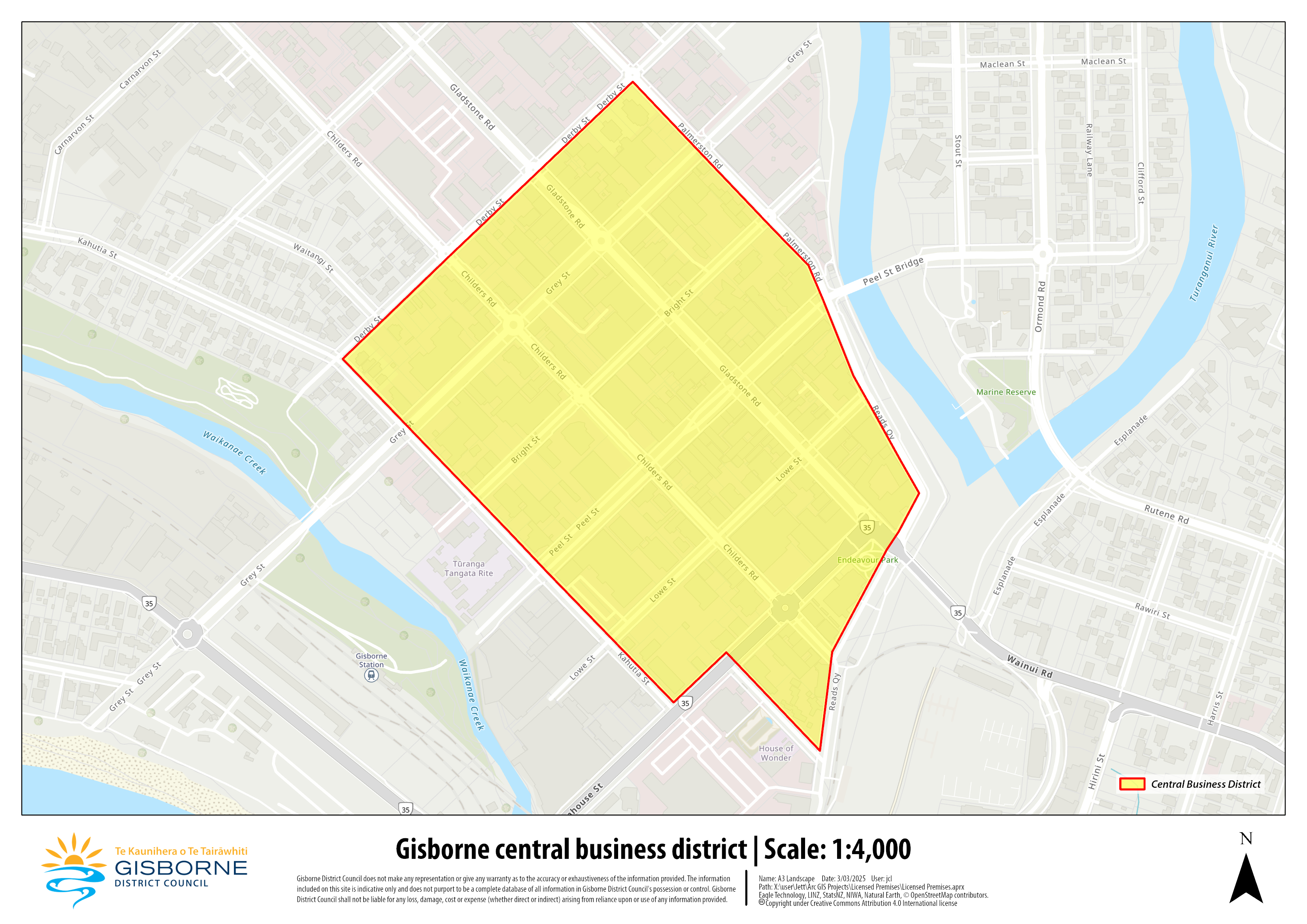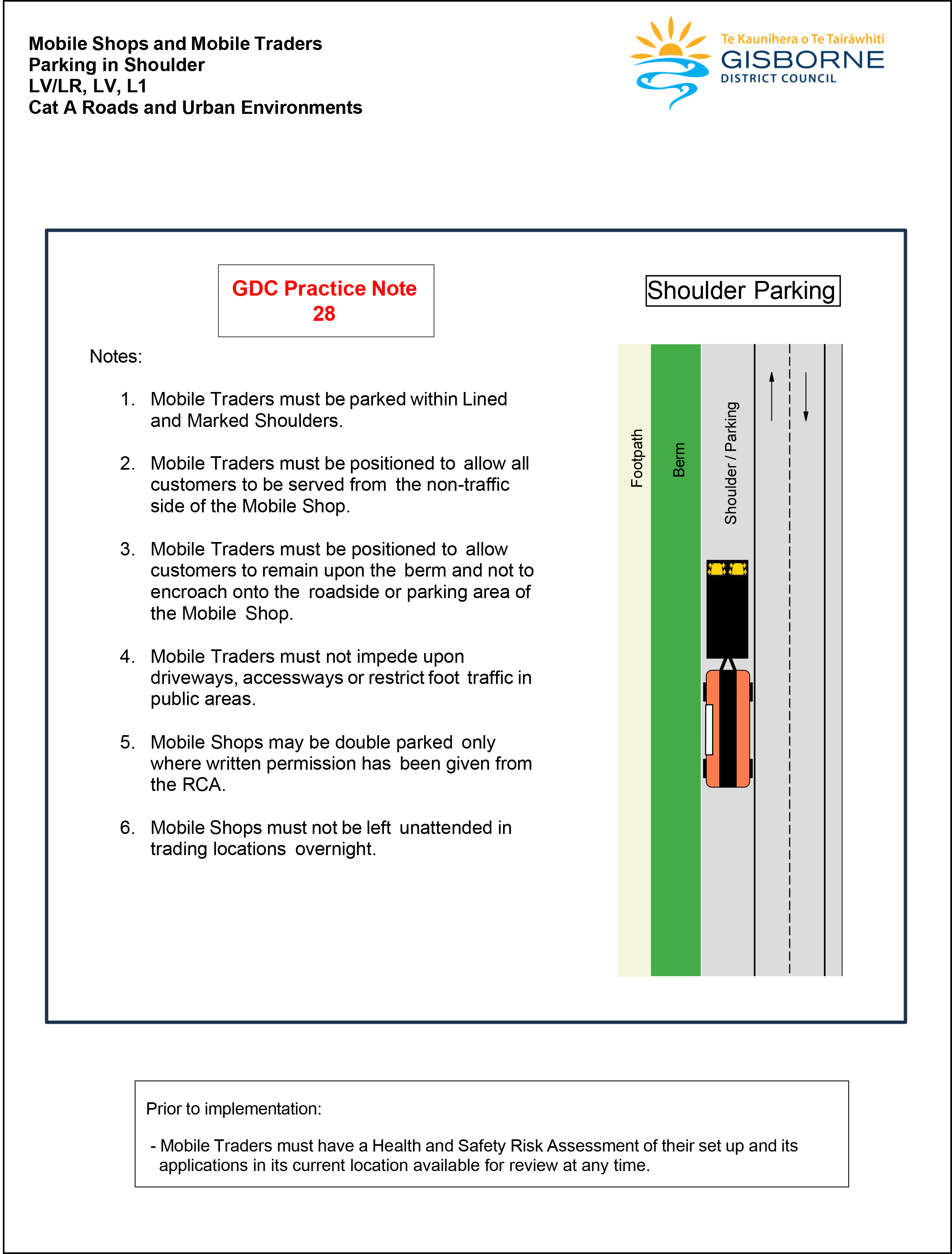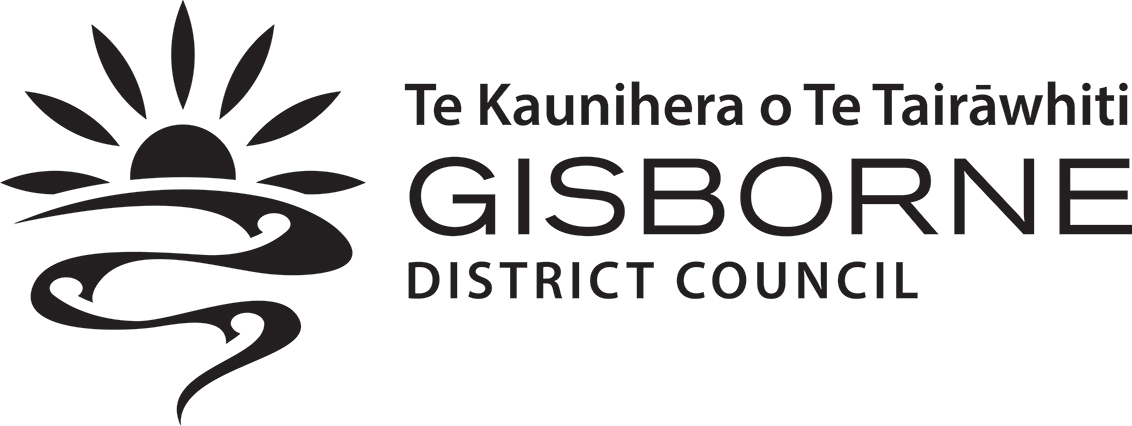This Mobile Traders Bylaw 2025 for Gisborne district came into force on 10 November 2025.
The purpose of this bylaw is is to regulate mobile trading to protect public health and safety and maintain the quality of public places by addressing potential risks of nuisance or misuse.
This Bylaw is the Ture-ā-Rohe Kaihoko Nekeneke o Te Tairāwhiti, Tairāwhiti Mobile Traders Bylaw 2025.
Made by Gisborne District Council
Resolution of Council dated 2 October 2025
This bylaw is made under sections 145 and 146 of the Local Government Act 2002 and section 22AB of the Land Transport Act 1998.
This bylaw must be reviewed no later than 2 October 2030 (5 years after date of resolution making the bylaw) as required by section 158 of the Local Government Act 2002.
This bylaw comes into force on 10 November 2025.
This bylaw applies to the Gisborne region.
Related information:
This bylaw is part of a wider framework of regional and national legislation that regulates trading activities. This bylaw does not seek to duplicate or be inconsistent with these requirements. Every person wanting to undertake mobile trading in the Gisborne region is responsible for understanding and complying with all applicable rules and regulations. These may include –
- Rules about food safety in the Food Act 2014
- Rules about activities on reserves in the Reserves Act 1977 and the Gisborne District Reserves Bylaw 2008.
- Rules about protecting significant areas in Te Papa Tipu Taunaki o Te Tairāwhiti – the Tairāwhiti Resource Management Plan.
- Rules about public safety, nuisance, litter and obstructions in the Gisborne District Public Places Bylaw 2015.
- Rules about traffic and parking in the Tairawhiti Traffic and Parking Bylaw 2021.
- Rules about the health and safety of workers in the Health and Safety at Work Act 2015.
- Rules about the sale of alcohol in the Sale and Supply of Alcohol Act 2012, the Tairawhiti Local Alcohol Policy 2024, and the Gisborne District Alcohol Control Bylaw 2015.
- Certification requirements for certain mobile traders with the Commerce Commission.
- Rules to ensure compliance with the Credit Contracts and Consumer Finance Act 2003.
- The Commerce Act 1986 which prohibits anti-competitive behaviour.
These rules and regulations are current as of March 2025. Readers should check whether they have been amended or replaced.
The Mobile Shops and other Traders Bylaw 2014 is revoked and replaced by this bylaw.
Part 1: Preliminary provisions
The purpose of this bylaw is to regulate mobile trading to protect public health and safety and maintain the quality of public places by addressing potential risks of nuisance or misuse by –
- requiring prior approval from Council for mobile trading;
- enabling Council to issue licences and prescribe conditions and requirements for mobile trading;
- ensuring traffic and pedestrian management for mobile trading to reduce risks of congestion.
In this bylaw, unless the context otherwise requires ―
Central Business District (CBD) means the area as defined by the map in Schedule 1 of this bylaw.
Council means the Gisborne District Council.
Enforcement officer means any person delegated, authorised or appointed by Council to act on its behalf and with its authority under this bylaw.
Hawker means a person who sells or hires, or offers to sell or hire, goods or services by travelling from place to place and, for the purposes of this bylaw, is a mobile trader.
Licence means a licence to carry out mobile trading that is issued under clause 11 of this bylaw.
Mobile shop means a vehicle (whether self-propelled or not) from which goods or services are sold or hired or offered for sale or hire but does not include any vehicle used only to transport or deliver goods or services ordered previously.
Mobile trader means a person who sells or hires, or offers to sell or hire, goods or services from a stall, or mobile shop that is regularly moved, and includes a hawker. Mobile trading has a corresponding meaning.
Public place means a place that is open to or is being used by the public, whether free or on payment of a charge, and whether any owner or occupier of the place is lawfully entitled to exclude or eject any person from that place.
Road has the meaning given in section 2(1) of the Land Transport Act 1998.
Stall means a stand, awning, table, booth, tent, barrow, cart or other temporary structure from which goods or services are sold or hired or offered for sale or hire.
Vehicle has the meaning given in section 2(1) of the Land Transport Act 1998.
- Every schedule to this bylaw forms part of the bylaw.
- Every Appendix to this bylaw does not form part of the bylaw, are provided for information purposes only and may be inserted, changed or removed at any time without any formal process.
- Related information does not form part of this bylaw, are provided for information purposes only and may be inserted, changed or removed at any time without any formal process.
Related information:
Compliance with this Bylaw does not remove the need to comply with all other applicable Acts, regulations, bylaws, rules of law, and terms of any lease or licence.
Part 2: Mobile trading in public places
Council may control mobile trading in public places in one or more of the following ways –
- Granting, declining, amending and revoking licences;
- Prescribing conditions for licences;
- Granting exemptions to requirements for licences;
- Prohibiting mobile trading in a public place either generally or for a specified category of trading or in a specified part of a public place.
(1) A person must obtain a licence from Council before undertaking mobile trading in a public place.
(2) A person seeking to operate as a mobile trader in a public place must obtain a separate licence for each mobile shop or stall to be used for mobile trading.
(3) Clauses 8 (1) and (2) do not apply to –
- (a) mobile trading or events undertaken by Council;
- (b) mobile trading or events that are authorised pursuant to a resource consent granted under the Resource Management Act 1991;
- (c) the delivery of goods or services to private premises;
- (d) classes or training provided by outdoor fitness operators;
- (e) regular sporting activities carried out by amateur organised sports clubs;
- (f) the outdoor display of goods or services adjacent to business premises from which the goods or services are usually provided;
- (g) the sale of produce adjacent to the premises where it was grown;
- (h) occasional sale of goods from a stall by a person under the age of 16 adjacent to the residential premises where the goods were made.
(1) A person requiring a licence for mobile trading under this bylaw must apply to Council.
(2) The application must–
- (a) be in the form required by Council; and
- (b) be accompanied by the relevant application fee set in the Council's Schedule of Fees and Charges; and
- (c) be received by Council at least twenty working days prior to the intended start date of the mobile trading; and
- (d) include a police check; and
- (e) include any other information Council requires.
(3) Without limiting subclause (1), Council may require an application for a licence to include additional information on one or more of the following matters –
- (a) details of the applicant and any other person who will participate in the mobile trading, including those who will sell goods or perform services;
- (b) description, plans and maps, photos of the location (including multiple sites), of the activity;
- (c) details of any furniture, structures, equipment, side awnings, vehicles, signs, displays and other items proposed to be used in connection with the mobile trading;
- (d) public liability insurance.
Related information:
Fees associated with application, approval, licence, consent, service or inspection can be found on Council's website under Fees and Charges.
The Traffic and Parking Bylaw 2021 provides that a person must not stop, stand or park a motor vehicle, wholly or partially, on that part of any road which is laid out as a cultivated area, being a garden or grass berm.
(1) When considering an application for a licence, Council –
- (a) will have regard to any matter it considers relevant and reasonably necessary to ensure that the licence is consistent with the purpose of this bylaw; and
- (b) may inspect locations related to the application for the purpose for which the licence is requested.
(2) Without limiting subclause (1), Council may take into account the following matters when considering an application for a licence –
- (a) locations, nature, scale, frequency and duration of the mobile trading;
- (b) details of any furniture, structures, equipment, side awnings, vehicles, signs, displays and other items proposed to be used in connection with the mobile trading;
- (c) actual or potential impact on the public, public places and surrounding environment, including but not limited to:
- impacts as a result of noise, glare, light spill, odour, anti-social behaviour;
- impacts on appearance, amenity and heritage features;
- obstruction or hazards to pedestrian or vehicular visibility, access or flow;
- obstruction of access by emergency, maintenance or utility services;
- the impact on nearby business premises; and
(3) how any actual or potential impacts may be mitigated, for example through waste management and minimisation, traffic management, safety and risk management, adverse weather, emergency, customer conduct plans;
(4) suitability of the applicant to hold a licence taking into account any past licences held, known past operational issues and the applicant’s experience and track record including breaches of any bylaw or licence cancellations;
(5) compliance with relevant requirements in any Act, regulation or bylaw to enable the mobile trading to occur lawfully, for example, food safety legislation;
(6) consistency with relevant Council bylaws, policies and plans.
(1) Council may grant or decline an application for a licence after considering the criteria listed in clause 10 of this bylaw.
(2) Council may issue a licence for a maximum of one year.
(3) A licence granted under this bylaw is not transferable.
(1) Council may exempt a mobile trader from compliance with any requirement or condition of a licence.
(2) Council must not grant an exemption unless it is satisfied that -
- (a) The extent of the exemption is not broader than is reasonably necessary to address the matters that gave rise to the proposed exemption; and
- (b) The exemption is consistent with the purpose of this bylaw
(3) Council may –
- (a) Grant an exemption subject to conditions; and
- (b) Amend or revoke the exemption.
(4) For the purposes of subclause (3 (a)) above, clause 13 (Conditions and Requirements) applies with all necessary modifications.
(1) No person may undertake mobile trading in a manner which causes or could cause a public safety risk, nuisance, damage, obstruction, disturbance, or interference.
(2) Council may impose conditions and requirements for a licence. The conditions and requirements must be consistent with the purpose of this bylaw and may include –
- (a) Limits on the type, quality and standard of goods or services offered;
- (b) Locations, nature, scale, frequency and duration of the mobile trading;
- (c) Specifications on the use and placement of any furniture, structures, equipment, side awnings, vehicles, signs, displays and other items intended to be used in connection with the mobile trading;
- (d) Limits on times of operation (days and hours);
- (e) Traffic management plans.
(3) A mobile trader must comply with all conditions and requirements of a licence.
(4) All goods and merchandise must be kept entirely within the mobile shop or stall with nothing placed on the ground. No items, including tables, boxes, crates or produce, may be set up on the road verge, reserve area, or surrounding vicinity.
(5) All advertising signs must be attached to the mobile shop or stall, except for one roadside sign. This roadside sign must not exceed 0.7 metres in width and 1.0 metre in height and must be placed within 100 metres of the mobile shop or stall on the same side of the road. The sign must be positioned so it does not obstruct traffic, road users or pedestrians.
(6) A person who has been granted a licence must –
- (a)have the licence with them; and
- (b)display it conspicuously so it can be easily read at all times while trading.
(7) Unless Council grants an exemption under clause 12, a mobile trader must not operate –
- (a) In the Central Business District;
- (b) Outside a place of worship on a day of worship except with the written permission of the person in charge of that place of worship;
- (c) Outside a school during school hours except with the written permission of the principal of that school;
- (d) In a residential area unless written consent signed by the occupiers of any residential properties immediately adjacent to where trading is taking place has been obtained, if consent is required by Council;
- (e) between the half hour after sunset on one day and the half hour before sunrise on the next day;
- (f) within 100 metres of permanent retail premises;
- (g) for more than seven hours in one location or within 500 metres of that location and must not return to a previously occupied site within eight hours.
Related information:
Requirements for food businesses are set out in the Food Act 2014. For more information on these requirements, the Ministry for Primary Industries (MPI) website contains some useful guidance at Introduction to the Food Act 2014.
Part 3: Enforcement, offences and penalties
(1) Council may use its powers under the Local Government Act 2002 or the Land Transport Act 1998 to enforce this bylaw.
(2) Where a person fails to comply with this Bylaw, including the requirements and conditions of a licence, Council may review the licence and, following the review, Council may amend, suspend, or cancel the licence.
Related information:
Council’s statutory enforcement powers include (but may not be limited to):
- Local Government Act 2002 - obtaining a court injunction (section 162), seizure and disposal of property (sections 164, 168), cost recovery for damage on conviction (section 176), power to require name and address (section 178) and prosecution (section 239).
- Land Transport Act 1998 - infringement fees under Regulation 4 and Schedule 1 of the Land Transport (Offences and Penalties) Regulations 1999 (as at 1 October 2024).
Enforcement Officer time will be charged to the licence holder, as per Council’s Fees and Charges.
A person who fails to comply with this Bylaw commits an offence or infringement offence and is liable to a penalty under the Local Government Act 2002, the Land Transport Act 1998 or, to the extent permitted by law, both Acts.
A person who fails to comply with this Bylaw and is issued with an infringement notice or convicted of an offence is liable to a penalty under the Local Government Act 2002, the Land Transport Act 1998 or, to the extent permitted by law, both Acts.
Related information:
A person who is convicted of an offence against this Bylaw is liable to a fine not exceeding $20,000 under section 242(4) of the Local Government Act 2002 (as at 1 October 2024)
A person who is issued with an infringement notice is liable to an infringement fee of $750 under Regulation 4 and Schedule 1 of the Land Transport (Offences and Penalties) Regulations 1999 (as at 1 October 2024).
Schedule 1: Map of the Gisborne Central Business District
The area indicated in the map below is referred to within the bylaw as the Central Business District (CBD).

Appendix 1: Traffic Management Diagram

